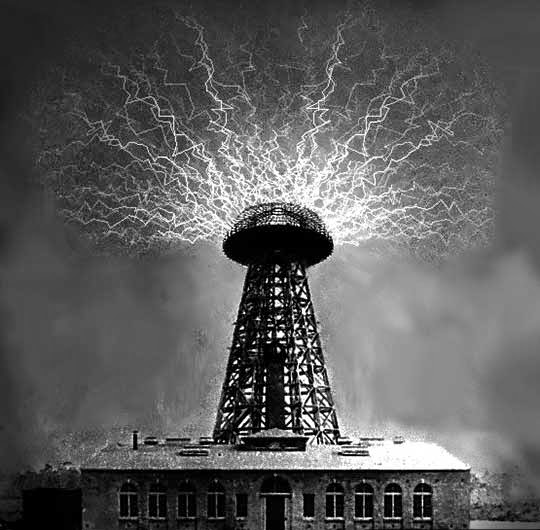Plzen wrote:NS Nation Name: Plzen
Nation Name: Skandinaviska samväldet (the Scandinavian Commonwealth). Often simply called Scandinavia or the Scandinavian Republic in English.
Flag of your nation: The civil national flag of the Scandinavians is golden yellow with a fiery red cross. The arms of the cross extend to the edge of the flag, and its width is 2/9 the combined width of the flag. The yellow areas are right angled rectangles, the rectilinear surfaces are parallel and the outer rectilinear surfaces as wide as them, but twice the length. The dimensions between the width and length are 18:25.
One paragraph history of your nation: The incredible march of technology of the Industrial Revolution and Tesla's second wave of inventions transformed European economics from the very foundations - and, in doing so, inspired the overthrow of all established social and political traditions. Economic prosperity, by making a decent life for all a concept that could actually be envisioned, fueled the rise of anarchism and socialism on one hand, and radical nationalism on the other. It was in this context of powerful political turmoil that an anarchist bomb-thrower assassinated Christian IX of Denmark on the 9th of June, 1897. The Folketing, desiring a neighbouring ally to support their claim to Slesvig and easier co-operation with the scientific and technical resources possessed by Swedish academic institutions, elected Oscar II of Sweden-Norway as the new monarch of Denmark, establishing a personal union. Although the actual power wielded by the new king over the Kingdom of Denmark was sharply and firmly limited by the liberal-democratic Danish constitution, the symbolic value and prestige associated with this Scandinavian personal union cannot be understated. A rising Scandinavian nationalist movement, closely associated with the liberal movements in Scandinavia, propelled increasing assertiveness in Scandinavian foreign policy, as well as closer integration between the still legally separate states. Although the personal union itself dissolved during the Great War, with Norway breaking out of the personal union in 1915 and the monarchy itself being abolished in Denmark and Sweden in 1916 following a massive political scandal, the political integration between the three governments still remained, and the Scandinavian Commonwealth continued to maintain an economic union and a common foreign policy. Due to its status as a neutral - and hence undamaged - power at the end of the Great War, Scandinavia was able to exert great influence over its neighbours. Thousands of Scandinavian volunteers fought for Finnish independence in the Russian civil war, as a result of which Finnish foreign policy aligned very closely to the Scandinavian and Finland joined the Scandinavian Commonwealth following a referendum in 1919. Furthermore, the Scandinavian Commonwealth did decide to press Denmark's historic claim to Slesvig in the peace conferences following the Great War as a result of which it was awarded the northern portion of the disputed area. In the decade following the Great War, Scandinavia remains committed to its belief in peace and neutrality, and have abolished national conscription as well as downsizing the navy. With its people rallying behind it, Scandinavia stands ready to face the trials the next decade may throw at it.
Government Form: Parliamentary democracy. The highest legislative body of the Scandinavian Commonwealth is the
skandinaviska rådet, or the Scandinavian Council, which includes 179 representatives elected on a basis of proportional representation for 4-year terms. After each election, the Scandinavian Council nominates a
Statsminister (State Minister), who is the head-of-state of the Scandinavian Commonwealth with an absolute majority. The State Minister then forms a government that, with the Scandinavian Council, administrates the nation until the following elections.
Army Size: Two infantry divisions and two infantry brigade, two motorised divisions, two coastal artillery brigades, one ranger brigade and one ranger regiment, six garrison regiments, two guard regiments, two cavalry regiments, and one strategic artillery regiment for 77,000 personnel total.
Army Description: Unlike many other European nations, the Scandinavian Commonwealth does not maintain a conscripted army in times of peace. The Scandinavian Army therefore is an all-volunteer force and is naturally small but well-trained and extremely well-equipped. The Scandinavian Army has possibly the highest concentration of machine guns of any army on the European Continent, and maintains a doctrine of intense firepower relying on automatic weapons and massed field artillery - aided by the latest technical innovations - more than on rifled infantry charges. Although Scandinavian tank designs are comparatively less advanced and prioritised, Scandinavia nonetheless possesses a significant light armour element in its two motorised divisions. The army headquarters is located in Göteborg.
Navy Size: 2 battleships, 1 heavy cruiser, 3 light cruisers, 6 destroyers, 2 torpedo boats, 2 minelayers, 3 submarines, and a variety of light craft. A total of 27,000 personnel divided between a North Sea Fleet headquartered in Bergen and a Baltic Sea Fleet headquartered in Karlstad. Unlike the army and the air force, the Scandinavian Navy is somewhat outdated and not optimally maintained.
Air Force: Circa 250 interceptors, 570 fighters, 100 heavy fighters, 10 aerial fortresses, 410 light bombers, 90 heavy bombers, 150 light reconnaissance and transport aircraft. A total of c. 1,580 aircraft served by a total of 28,000 personnel. The Scandinavian aeronautics industry is excellent, and this is reflected in both the unusually large size and the impeccable quality of the Scandinavian Air Force. The Headquarters of the Scandinavian Air Force is located in Copenhagen.
Territory of country: Claims and controls Denmark (+Greenland), Sweden, Norway, and Finland each according to their 1930 borders. Has
de jure co-jurisdiction in the Shanghai International Settlement. Claims, but exercises no effective control over, Queen Maud Land, Bouvetøya, and Peter I island.


